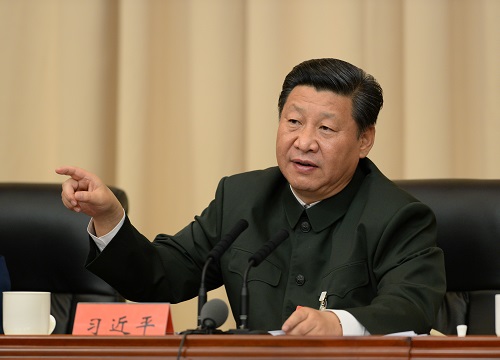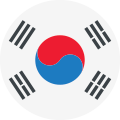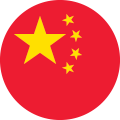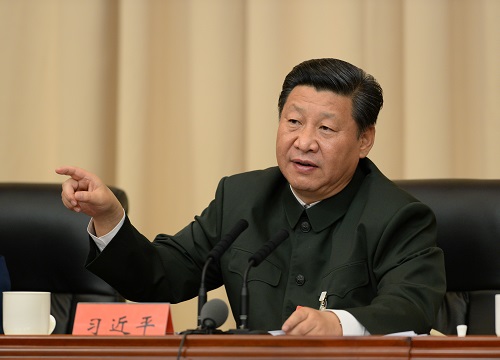 이미지 확대보기
이미지 확대보기시진핑 주석은 지난 수십년간 그 어떤 중국 지도자보다도 빨리 세력을 축적했다. 그리고 그의 참모들은 그가 오바마와 다른 지역 지도자들과 이번 주 베이징에서 가진 회담이 중국과 그의 상승세에 또 다른 긍정적 영향을 줄 것이라 확신하고 있다.
지난 20년간, 중국 공산당의 핵심 인사들은 마오와 덩샤오핑의 지도 아래 발생한 격동의 반복을 피하기 위해 의견 합의에 의해 결정을 내리려 노력했다. 하지만 권력을 잡은 지 2년도 채 안되어 시진핑은 여당인 중앙정치국 상무위원회에서 '동급 중에서도 최고' 그 이상의 인물이 되었다. 이는 중국이 안정적이고 대체적으로 무거운, 집단 지도 체제에 의해 통치될 것이라는 오랜 예상을 뒤엎었다.
그의 상승세는 미국과 오바마에게 두 가지를 암시한다. 두 지도자가 만나면 오바마는 그의 상대가 약속을 지킬 능력이 충분히 있다고 확신할 수 있을 것이다. 그들은 온실가스 제한에 대해 대략 2030년까지는 중국이 이산화탄소 배출량의 정점을 찍을 것이라는 기념비적인 협의를 포함한 합의안을 공개했다. 중국은 많은 정보통신 기술 제품의 관세를 없앨 것이라고 말하기도 했다.
시카고 대학의 정치학 교수인 달리 양은 "시진핑은 어떤 면에서는 푸틴과 다르지 않은 모습을 보여주고 있다"며 "그는 기본적으로 '나는 당을 보호하고 국가의 영토주권 측면에서 국익을 보호하기 위해 이 자리에 있는 것'이라고 말한다"고 밝혔다.
시진핑의 상승세를 나타내는 흔적은 서점에서 판매 중인 그의 연설문을 모아놓은 책에서부터 대개 불필요할 정도로 과하지만 강렬한 그의 바쁜 일상에 대한 신문 보도까지 여기저기에서 볼 수 있다.
간단한 예로, 전국 뉴스 매체에서는 최근 시진핑을 '시 다다'라고 불렀는데 이는 대략 큰아버지라는 뜻이다.
시진핑은 부패 관리에 대항한 장기 캠페인을 통해 당 서열을 높였고 진보적 지식인들을 실망시킨 반대의견을 강하게 탄압했다.
그는 동료들에게 장관직을 나눠주는 것보다 "소수 지휘 집단"이라고 알려진 당의 가장 중요한 정책위원회에 대한 지배권을 키웠고, 그의 지휘권 아래 몇 개의 새로운 기관을 만들었다. 여기에는 국가안전보장위원회, 군사 정비, 경제 재구성, 그리고 인터넷 통제가 포함된다.
양 교수는 "시진핑은 그 누가 예상한 것보다 더 활발한 행보를 보이고 있다"며 "우리는 몇몇의 강한 행보를 예상하긴 했지만 그의 적극성의 정도나 규모, 그리고 범위에 대해서는 예상하지 못했다"라고 밝혔다.
시진핑은 그동안 논란 속의 바다와 섬에 대한 중국의 입장을 강하게 주장하며 일본과 동남아시아 이웃들과의 분열을 악화시키면서 강한 외교 정책을 감독했다. 이러한 갈등은 금요일에 일본과의 입장 차이를 인정한 협의, 그리고 월요일에 한국과의 무역협정이 발표되면서 현재는 완화되었다.
그는 무력 분쟁으로 이어질 수 있는 대립을 피하기 위해서 워싱턴과 새로운 '강대국' 간의 관계를 구축하고 싶다고 말했다. 더불어 중국의 요구와 관심에 대해 더 좋은 인식을 얻기 위함이라고 덧붙였다. 작년 6월, 그는 캘리포니아 서니랜드에서의 철수 때 가진 이틀간의 회담에서 오바마와 신뢰를 구축하려고 했다.
동시에, 시진핑의 행정부는 중국의 문제가 서부국가의 정부가 통제하는 '적군'에 의해 악화되었고, 오히려 부추겨졌다는 당의 전통적인 사상을 부활시키고 증폭시켰다. 중국의 고위 공무원들은 미국이 공산당의 정권을 무너뜨렸다고 비난했고 가장 최근에는 홍콩에서 발생한 민주화 운동을 지지함으로써 비난이 성립된다고 주장했으나 미국 정부는 이 비난에 대해 부정하고 있다.
UC 샌디에이고 대학 교수이자 클린턴 정부 때 주의 부차관보였던 수잔 L. 셔크는 "적대적인 외군 세력과 관련한 냉전의 이념적인 사상과 미국의 멸망 사이에는 모순이 있다. 하지만 동시에 그들은 새로운 강대국의 관계를 원한다고 말하고 있다"고 말했다. "이는 중국 공산당의 국내 정세에 대한 불안을 나타낸다"
셔크 교수와 다른 중국 전문가들은 신경을 괴롭히는 두려움과 불안감이 중국의 새로운 기세와 주장의 이면이며 입장의 불일치에 대한 결과가 어떠한지 보여주게 될 것이라고 말했다.
중국의 불안은 많은 원인이 있다. 스모그와 뇌물, 토지 압수에 대한 대중의 불평, 부정부패로 썩은 관료와 군대, 홍콩에서의 혼란, 티베트와 신장에서의 민족 분쟁, 그리고 더딘 경제 성장의 불확실한 영향 등이다.
시진핑은 10월 말에 "우리 당이 개혁, 성장, 그리고 안정성에서 직면하고 있는 과제는 어느 때보다도 더 부담이 된다"며 "그리고 갈등, 위험, 도전은 어느 때보다도 더 많다"고 말했다.
그 계산은 국내 정책에도 적용된다. 시진핑은 이미 수년간 중국에서 가장 치열한 정치적 이견에 대한 탄압을 감독하고 있고 부정부패에 대항하는 전반적인 캠페인도 지시했다. 조사 대상에는 이미 철저한 검토를 통과했던 은퇴한 고위 간부들과 군사 관료들까지 포함되어 있다. 그는 경제를 정비하고 기업들이 성장할 수 있도록 기회를 주겠다고 맹세했다. 또한, 지난달에 있었던 회의에서 당 지도자들은 경찰과 법원 손에 있는 시민들에게 보다 공정한 대우를 해준다는 제안을 지지했다.
몇몇의 중국학자들은 시진핑이 그가 세력을 굳힌 후에 보다 온건한 행보를 보일 것이라는 초기 예상에 반항할 가능성이 있다고 말했다. 그들은 이러한 변화가 위험한 약점의 조짐이 될 것이라고 덧붙였다.
외교부의 아시아 분야 책임자인 엘리자베스 C. 에코노미가 질문에 대한 답변으로 이메일을 통해 "만약 향후 1, 2년 동안 중국 경제가 상당한 약세를 보이거나 베이징과 같은 주요 도시의 대기오염이 개선되지 못하거나 신장에서 국내 다른 지역으로 폭력 사태가 번져나간다면 시진핑은 그의 정치적 권한에 심각한 타격을 입게 될 것"이라고 말했다.
이어 "그의 강인한 처리 방법의 동기에는 행동을 취하지 않았을 때 모든 것이 망할 수도 있다는 두려움도 포함되었을 것이다"라고 밝혔다.
이전의 당 지도자들처럼 시진핑도 중국은 국민들의 요구를 충족시켜주는 데에 집중하기 위해 안정적이고 평화로운 국제적 이웃들이 필요하다고 말했고 분석가들은 그 초점이 그의 정부가 일본과 동남아시아국가들과의 갈등을 해소하는 데 도움이 될 것이라고 말했다.
셔크 교수는 "이웃들의 반응을 통해 배움으로써 재보정이 일어난 것처럼 보인다"라고 말했다.
하지만 에코노미는 "보다 넓은 외교 정책 목표에 중국의 주장이 악영향을 끼쳤는지에 대한 논쟁은 분명히 진행 중에 있다"라며 "하지만 현재의 온건함이 유지되는 방향으로 문제가 해결되었는지에 대해서는 의문이 든다"고 말했다.
/
글로벌이코노믹 조수현 기자
/뉴욕 타임스 원문
Xi’s rapid rise in China challenges to the US
President Obama will sit down Wednesday with the kind of Chinese leader no American president has ever encountered: a strongman with bold ambitions at home and abroad who sees China as a great power peer of the United States.
President Xi Jinping has amassed power faster than any Chinese leader in decades, and his officials have cast his talks with Mr. Obama and other regional leaders this week in Beijing as another affirmation of the ascendance of China and of Mr. Xi.
For over 20 years, the Chinese Communist Party elite largely made decisions by consensus, seeking to avoid a repeat of the turbulence under Mao and Deng Xiaoping. But less than two years after assuming power, Mr. Xi has emerged as more than the “first among equals” in the ruling Politburo Standing Committee, shaking the longstanding assumption that China would be steered by steady, if often ponderous, collective leadership.
The implications of his rise for the United States, and for Mr. Obama, are two-sided. When the two leaders meet, Mr. Obama may have a surer sense that his counterpart has the power to make good on his promises. On Wednesday, they unveiled a deal on curbing greenhouse gases, including a landmark agreement by China to reach a peak in carbon dioxide emissions by about 2030. On Tuesday, China also said it would eliminate tariffs on many information technology products.
But so much now depends on Mr. Xi’s political calculations, and he has shown himself to be wary of the West and disinclined to make concessions under pressure.
“Xi portrays himself in some ways not unlike Putin,” said Dali Yang, a political science professor at the University of Chicago. "He’s basically saying that 'I am here to defend the party, to defend the national interests in terms of national territorial sovereignty.'"
Signs of Mr. Xi’s ascendancy are everywhere, from the collections of his speeches selling in bookstores to the intense, often adulatory, news coverage of his busy routine. In lighter moments, the state-run news media have taken to calling him “Xi Dada”: roughly, Big Papa Xi.
Mr. Xi, 61, has shaken up party ranks with an extended campaign against official corruption and pursued a crackdown on dissent that has dismayed liberal intellectuals. Rather than distribute portfolios among his colleagues, he has hoarded control of the party’s most important policy committees, known as “leading small groups,” and established several new ones under his command: on national security, military overhauls, economic restructuring and control of the Internet.
“Xi has been more vigorous than anyone probably had imagined he would be,” Professor Yang said. “We did anticipate some strong moves on his part, but not the scale, the breadth and the scope of his initiatives.”
Mr. Xi has overseen a muscular foreign policy, pressing China’s claims to disputed seas and islands, deepening rifts with Japan and neighbors in Southeast Asia. Those tensions have been tempered, for now, by an agreement with Japan on Friday acknowledging their differences and a trade agreement with South Korea announced Monday.
He has said he wants to build a new “great power” relationship with Washington to avoid confrontation that could tip into armed conflict, but also to win greater recognition for China’s demands and interests. In June last year, he sought to build trust with Mr. Obama during two days of talks at the Sunnylands retreat in California.
At the same time, Mr. Xi’s administration has resurrected and amplified traditional party themes that China’s woes have been exacerbated, even instigated, by “hostile forces” controlled by Western governments. Chinese officials accuse the United States of seeking to topple Communist Party rule, most recently by supporting pro-democracy demonstrations in Hong Kong, a charge the United States government denies.
“There is this contradiction between this Cold War ideological thinking about hostile foreign forces and U.S. subversion, but at the same time saying that they want to have this new type of great power relationship,” said Susan L. Shirk, a professor at the University of California, San Diego, who was a deputy assistant secretary of state in the Clinton administration. “It’s the domestic insecurity of the Chinese Communist Party.”
Gnawing fear and anxiety, Professor Shirk and other China experts say, are the flip side of China’s new strength and assertiveness, and may go a long way toward explaining what can appear to be dissonant positions.
The sources of China’s insecurities are many: public discontent over smog, graft and land seizures; a bureaucracy and military rotted by corruption; tumult in Hong Kong; ethnic strife in Tibet and Xinjiang; and the uncertain effects of slowing economic growth.
“The tasks our party faces in reform, development and stability are more onerous than ever,” Mr. Xi said in late October, “and the conflicts, dangers and challenges are more numerous than ever.”
That calculus applies to domestic policies as well. Mr. Xi has already overseen the most intense and extended crackdown on political dissent in China in years, as well as a sweeping campaign against corruption whose targets have included retired senior security and military officials once thought of as immune to scrutiny. He has also vowed to overhaul the economy and give businesses more room to grow, and party leaders at a meeting last month endorsed proposals to give citizens fairer treatment at the hands of the police and in court.
Several China scholars said Mr. Xi was likely to defy early expectations that he might shift to a more moderate course after consolidating power. Such a shift could be seen as a sign of dangerous weakness, they said.
“If over the next year or two, there is a significant slowdown in the Chinese economy, the air quality fails to improve in major cities such as Beijing, or the violence spreads from Xinjiang to other parts of the country, then Xi may well take a serious hit to his political authority,” Elizabeth C. Economy, director for Asian studies at the Council on Foreign Relations, said in emailed answers to questions. “The motivation behind his tough approach may well include fear that it will all come crashing down otherwise.”
Echoing previous party leaders, Mr. Xi has said that China needs a stable and peaceful international neighborhood so that it can focus on its domestic needs, and analysts said that focus could encourage his government to contain tensions with Japan and neighbors in Southeast Asia. “It looks to me like there has been a recalibration, a kind of learning from the reaction of your neighbors” by China, Professor Shirk said.
But Ms. Economy said she was skeptical that the calm would last.
“There is certainly a foreign policy debate underway within China over whether China’s assertiveness in the region has been harmful to China’s broader foreign policy objectives,” she said. “But I don’t think that it has been resolved in a way that suggests this moderation is permanent.”
























![[뉴욕증시] 관세 전쟁 속 2분기 실적 '촉각'](https://nimage.g-enews.com/phpwas/restmb_setimgmake.php?w=270&h=173&m=1&simg=2025071303530007283be84d87674118221120199.jpg)

















